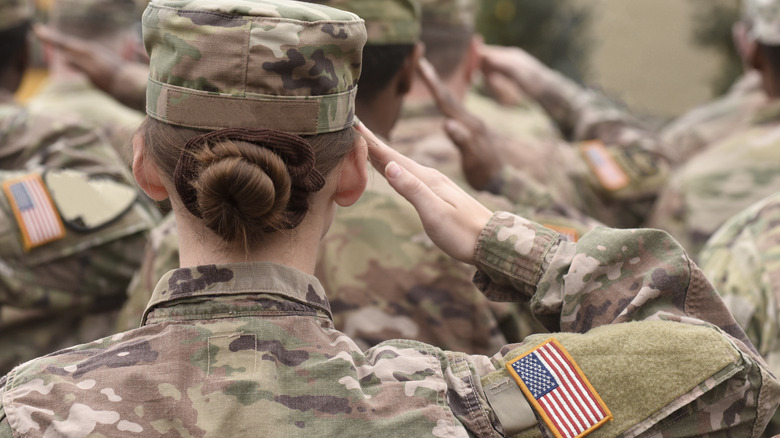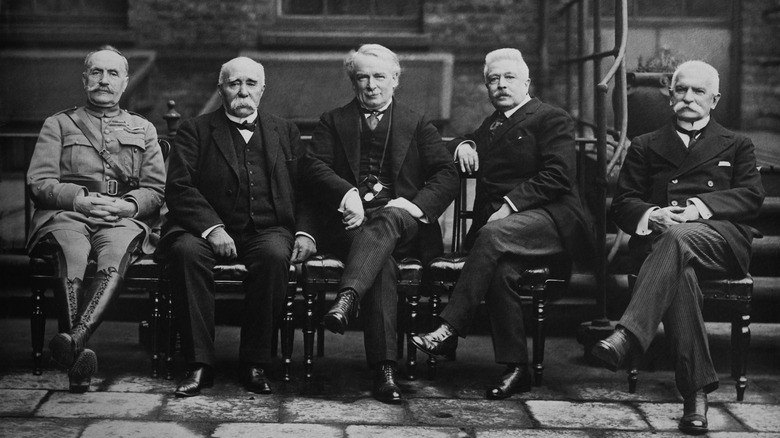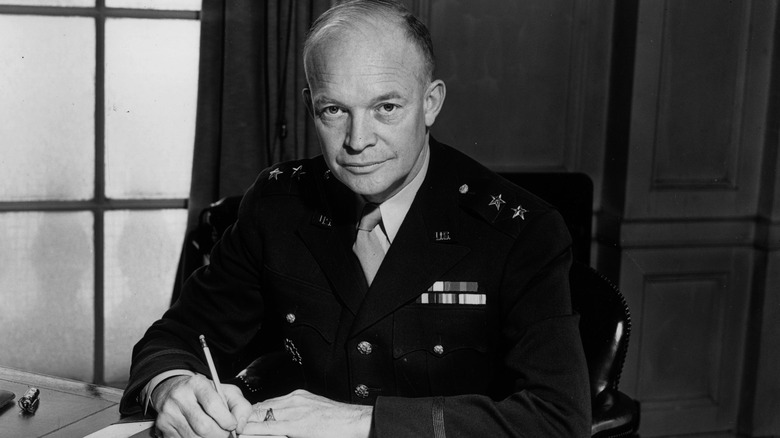When Was The First Veterans Day?
On November 11th, 1954, Veterans Day in the United States was celebrated for the first time in the nation's history, and honors those who serve or have served in the armed forces. The holiday didn't always exist, however, and actually comes from a former holiday, Armistice Day, which celebrated the end of World War I, according to the Department of Veterans Affairs.
Although World War I officially ended on June 28th, 1919, when the Germans signed the Treaty of Versailles in France, an armistice had been declared in November of the prior year. The ceasefire started on November 11th, 1918, at the 11th hour, which is where the famous lines "on the eleventh month, of the eleventh day, at the eleventh hour..." are said when commemorating the end of the war (via the Department of Veterans Affairs). President Woodrow Wilson decreed Armistice Day the following year, on November 11th, 1919, to remember those who served in the gruesome war.
A solemn holiday
Seven years later, in 1936, the U.S. Congress passed a resolution that made Armistice Day an annual observance. By 1938, President Franklin Delano Roosevelt made Armistice Day a national holiday to commemorate those who served in World War I each and every year, and to celebrate world peace in general. For context, World War I had been dubbed "the war to end all wars," and before World War II, it was simply known as The Great War, according to History.
This title was well deserved, as World War I was filled with some of the deadliest warfare humanity had ever seen. A total of 18 million people perished in the war, including 11 million military personnel and seven million civilians, according to the Borgen Project. After the war, many people expected that humanity would stop fighting, and that the new League of Nations, which was heavily promoted by President Woodrow Wilson, would put an end to humanity's violent history, but for anyone who knows history knows that this wouldn't be the case.
The first Veterans Day
In 1939, World War II broke out, and was even deadlier than World War I, with the death of over 70 million people worldwide. Americans also served in the Korean War in the early 1950s, and by this time there had been a motion to recognize veterans across the nation from different veterans advocacy groups. As a result, on June 1st, 1954, President Eisenhower made an amendment to the Armistice Day holiday, replacing the word "armistice" with "veterans," to honor all people who served in the armed forces in the nation's history, according to the Department of Veterans Affairs.
On October 8 of the same year, President Eisenhower issued the Veterans Day Proclamation, saying "In order to insure proper and widespread observance of this anniversary, all veterans, all veterans' organizations, and the entire citizenry will wish to join hands in the common purpose. Toward this end, I am designating the Administrator of Veterans' Affairs as Chairman of a Veterans Day National Committee, which shall include such other persons as the Chairman may select, and which will coordinate at the national level necessary planning for the observance. I am also requesting the heads of all departments and agencies of the Executive branch of the Government to assist the National Committee in every way possible."
The following November, Veterans Day was first celebrated across the nation, and the tradition continues to this day.


